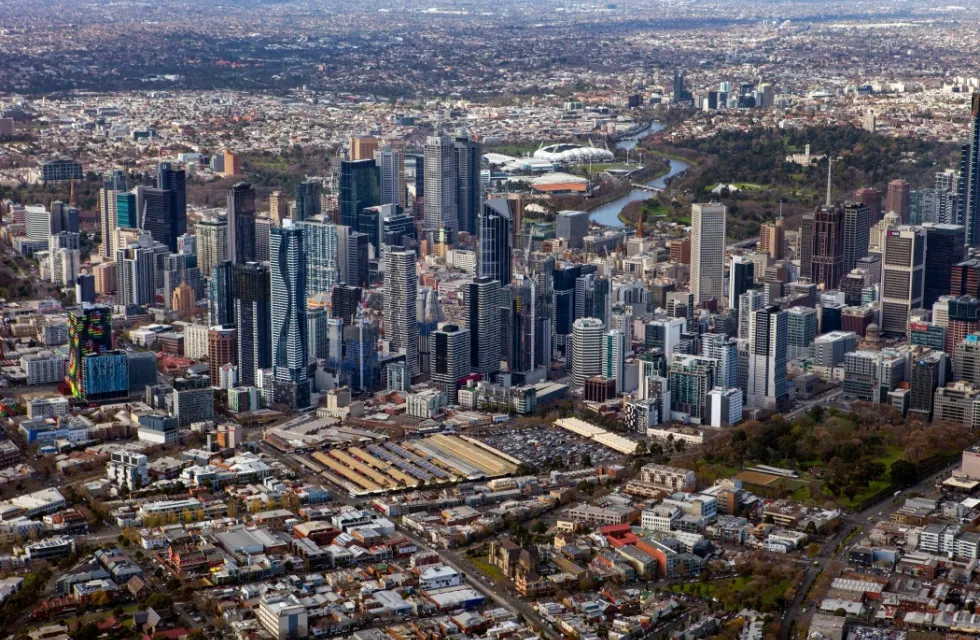Explore
Ending homelessness
Ending homelessness is a priority for the City of Melbourne that we are actively working towards.
Through our Homes Melbourne team, we are working with partners to address the shortfall of 6000 affordable homes and help end homelessness in our city.
We work across the entire housing spectrum to help people who are rough sleeping to move into short-term, supported housing while increasing long-term affordable rental housing options.
Find out more
Homelessness and affordable housing
Our Homes Melbourne program is dedicated to creating safe, secure and affordable housing.
Make Room
Providing secure supported housing for people experiencing rough sleeping or chronic homelessness in Melbourne.
Affordable housing projects
All Melburnians deserve access to safe and affordable housing.
Real stories
Discover the stories of people who have experienced homelessness on the streets of Melbourne. Our initiatives help to support people just like this.
Housing and homelessness crisis
In our city, people are experiencing many types of housing stress, from rough sleeping and experiencing chronic homelessness to living in severely overcrowded accommodation.
In addition, people are facing rental pressure and being forced to live long distances from jobs, services and their support networks.
We are facing a housing and homelessness crisis, a situation mirrored across Australia.
Shortage of affordable homes
Decades of under-investment in social and affordable housing combined with a growing population, rising housing costs, and the COVID-19 pandemic mean there are not enough affordable homes in the city.
Approximately 6000 affordable rental homes are needed to meet the current demand in the City of Melbourne. If we do nothing, it is estimated that this will quadruple to more than 23,000 by 2036.
The leading causes of homelessness and housing stress are complex and vary from person to person. They include factors such as poverty and the lack of affordable housing, family violence, rental stress, rising living costs, gender pay gap, poor health, trauma and job insecurity.
People sleeping rough and experiencing chronic homelessness
In 2020, before the COVID-19 pandemic, more than 300 people slept rough in the central city every night.
During the pandemic, the Victorian Government, with the support of homelessness agencies, provided emergency hotel accommodation for people rough sleeping and experiencing homelessness. However, the shortage of suitable accommodation options means some people have returned to sleeping on the streets.
This visible homelessness, people sleeping on the streets, is just the tip of the iceberg in our homelessness crisis.
Many more women, children and families are part of the hidden homelessness problem – sleeping in their cars, on other people’s couches and in severely overcrowded or temporary accommodation.
In our municipality, homelessness rates have increased over the past 10 years. The 2021 ABS census recorded 1166 people as experiencing homelessness in the City of Melbourne.
In Victoria, for every person sleeping on the street, there are another 21 people experiencing homelessness.
Homelessness support
We work with representatives from the Victorian Government, other councils and agencies to provide a coordinated approach to housing and homelessness.
We convene with several networks on homelessness, including the Melbourne Service Coordination Project, which brings together representatives from 17 agencies who work with people sleeping in the central city.
The project streamlines services for people experiencing homelessness, linking them with practical support with the aim to get them off the streets and into permanent housing. The group includes specialist workers from various services who work directly with people experiencing homelessness.
The project provides housing, health, mental health, alcohol and drug addiction support.
The Melbourne Service Coordination Project (MSCP) gathers data through the By Name List to link people to the support they need and ultimately off the street into permanent housing. The By Name List is the most accurate, complete and timely list possible of all individuals experiencing rough sleeping in the City of Melbourne. It is an efficient method for monitoring outcomes for people experiencing rough sleeping homelessness.
We partner with and fund organisations to prevent homelessness and support people at risk of homelessness:
- Salvation Army Melbourne Project 614Opens in new tab – provides support by supplying meals, clothing and counselling, and while working with clients to help create pathways out of their current state of marginalisation.
- Melbourne City Mission Frontyard Youth ServicesOpens in new tab – a specialist youth service located in Melbourne’s CBD. Young people can find emergency accommodation, obtain quality case management from staff and access a range of services. The team supports young people to meet their physical, emotional and social needs and develop pathways out of homelessness.
- cohealth Central City Community Health ServiceOpens in new tab – a holistic health service for people experiencing homelessness in the CBD. cohealth provides dietitian services, drug and alcohol counselling, homelessness allied health, homelessness mental health service and homelessness support services. It is underpinned by a human rights framework and trauma-informed practice.
- Salvation Army Youth Street TeamsOpens in new tab – volunteers who connect with intoxicated young people who have become separated from their friends and are vulnerable to potential assault and/or abuse. The team operates on Friday and Saturday nights between 10pm and 5am.
- We also have Australia’s first dedicated Library Social Worker to provide support and referrals to people experiencing homelessness. Visit our libraries pageOpens in new tab to find one near you.










